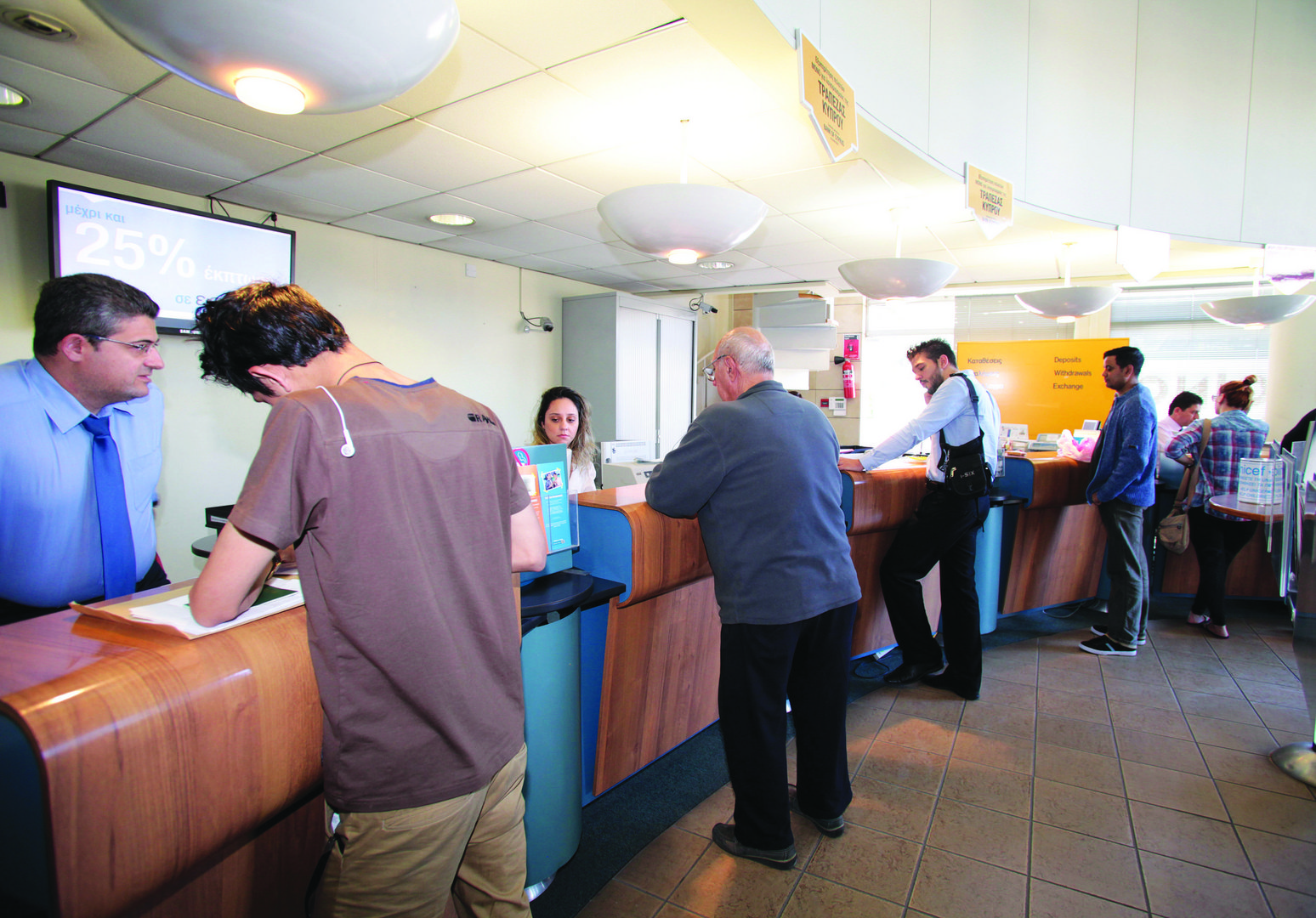Cypriots have low confidence in bank officials when it comes to their advice on making financial decisions, while about one-third claim their basic rights had been breached at least once during interactions with financial institutions.
These were among the key findings of a just-published flash Eurobarometer on retail financial services and products. The survey was carried out between May and June of this year.
For Cypriots, the main sources of information (40 per cent) in making decisions on personal financial matters, were specialist product comparisons and best-buy guidance, such as a specialist magazine or a price comparison website. Recommendations from friends and family came in second at 34 per cent.
Stung by the banks bail-in in 2013, although they trust bank advertisements, just 17 per cent of Cypriots said they have confidence in the recommendations by bank staff or other financial consultants – compared to the EU average of 45 per cent.
On the issue of ‘sustainable finance’, 39 per cent of Cypriots (EU average was 24 per cent) felt strongly that they would not like their savings and investments used to finance activities with an adverse impact on the environment. However, just 34 per cent said they were certain, or relatively certain, as to whether their savings and investments were being used in environmentally sustainable activities.
And 77 per cent felt confident in managing their finances securely via websites or apps.
Significantly, 32 per cent of Cypriots said their financial rights were breached during the course of interacting with a bank.
In total, across the EU, about one in five respondents said that their rights were breached opening a bank account, making payments, taking out a consumer loan or a loan to buy a home, buying an insurance policy or taking out an investment product.
For each of these banking and financial actions, between 4 per cent and 8 per cent of respondents replied that their rights were breached at least once in the past. However, only 4 per cent in Cyprus complained to the relevant national authority as opposed to 16 per cent in the EU and only 4 per cent went to a consumer rights protection association in Cyprus compares with 10 per cent in the EU.
Regarding the use of ATMs, 55 per cent of Cypriots (compared to 46 per cent across the EU) stated it was “very easy” to withdraw cash at an ATM or physical bank branch, and 32 per cent said it was “rather easy.”
Meanwhile 35 per cent of Cypriots (compared to 33 per cent across the EU) had heard of the digital euro.
Around 12 per cent in Cyprus and 10 per cent in the EU consider themselves to have a good knowledge on the topic, while 31 per cent of those asked in Cyprus and 23 per cent in the EU stated that they had heard about the topic but were not sure about the details.
But even among those who don’t know what the digital euro is, there was plenty of interest in learning more details – 35 per cent in Cyprus and 36 per cent in the EU – while 17 per cent in Cyprus and 27 per cent in the EU said they did not know and were not interested.
Also, 9 per cent (compared to 12 per cent across the EU said they had a bank account in another EU member-state. And 38 per cent of bank clients in Cyprus said they bought a financial product in another EU member-state.







Click here to change your cookie preferences